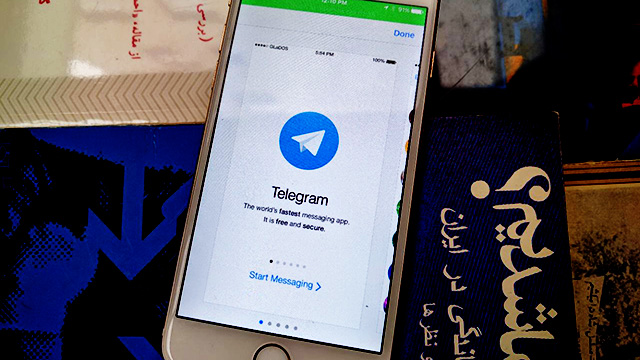Iran’s Cyber Police Tries to Control Popular Social Media App Telegram with Hacking, Permits

A state crackdown on social media ahead of Iran’s 2017 presidential election has resulted in the Cyber Police (FATA) requiring Iranian-owned channels with more than 5,000 followers on the country’s most popular messaging application, Telegram, to seek official permits. Meanwhile, several Iranian-owned Telegram channels have been hacked by state agents, according to an investigation by the International Campaign for Human Rights in Iran.
In early December 2016, FATA targeted Telegram channels with 300,000 to 500,000 members that mainly contained posts about entertainment and other non-political issues. The accounts of these channels were hacked just a few days after their administrators were summoned and questioned by FATA.
In one case, state hackers accessed a Telegram channel administrator’s Yahoo email account—after hijacking his two-step password verification process on Yahoo—which enabled them to gain access to his Telegram account.
Yahoo’s two-step password verification process will send a verification code to a user’s mobile phone after a login attempt before anyone can access the account, ostensibly to ensure that only the account owner can access the account. Once hackers have control of the Telegram-associated email account, they can also control the Telegram account. In the hacking cases investigated by the Campaign, the verification codes sent to victims’ phones could have only been intercepted by state agents with direct access to state-owned telecommunication lines.
Permits for Telegram?
Six months ahead of Iran’s May 2016 presidential election, security agencies are stepping up efforts to limit access to social media, which played a crucial role in past elections by offering reformist candidates an uncensored avenue for promotion after being blocked by hardliners in traditional media.
In both the 2013 presidential election and the 2016 Parliamentary election in Iran, Telegram was top among the most influential mediums that pro-Rouhani and reformist candidates used to spread their message and gain voter support. A source close to the administration of President Hassan Rouhani told the Campaign that a few weeks before the 2016 Parliamentary election, FATA officials pressured Rouhani to block Telegram in the last 24 hours before voters headed to the polls. Rouhani did not comply.
Especially attuned to Telegram’s growing popularity, Iranian authorities are actively trying to find ways to monitor and control user activities on the app, which, with an estimated 20 million users, is the most widely used social media network in Iran.
“In the last meeting of the Supreme Cyberspace Council, it was decided that those who own news channels on social media with a certain number of followers should get a permit,” said Telecommunications Minister Vaezi on December 5, 2016.
The following day, Prosecutor General Mohammad Jafar Montazeri slammed the Council and other officials for failing to control the unfettered exchange of information on the internet.
“Death to freedom for all the destruction it brings,” he said on December 6. “This isn’t freedom. It’s the worst kind of bondage. Polluted anti-religious networks are functioning in this country because the organizations in charge are not doing their jobs.”
Also speaking on December 6, FATA Chief General Kamal Hadianfar said his organization would soon enforce a new regulation requiring owners of pages with more than 5,000 members on social media networks, including Telegram, to request a permit.
“FATA will survey Telegram channels and filter those that violate the law,” he said.
However, Iran cannot block specific channels on a social media network operating on foreign soil without direct access to its servers, which Iran does not have in the case of Telegram and all other major social media applications. The only way Iran could block certain pages is by blocking the entire app, and even then Iranian users could still access them with anti-circumvention technology.
Hadianfar did not address these issues in his statement.
Iranian officials have previously tried, unsuccessfully, to convince Telegram to move its servers onto Iranian soil in order to monitor, restrict and control domestic user activity, which they continue to attempt with the internet.






